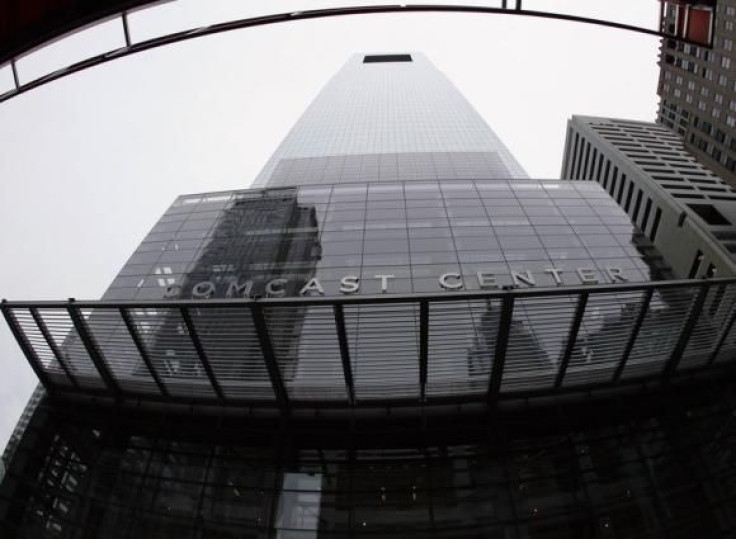Comcast Extortion Claim Draws Ire From Time Warner Cable Merger Opponents, Including Netflix And Veria Living

Hours after being accused of extortion by Comcast Corporation, media companies large and small are firing back, calling the claims nothing short of hypocrisy from a $64.7 billion bully.
“All we have ever asked for is a level playing field for all programmers and a chance for all networks to get their messages to consumers,” Eric Sherman, chief executive of the independent cable network Veria Living, said in an emailed statement. “For a giant like Comcast -- which is about to control 28 of the nation’s top 30 markets -- to accuse us of extortion is absurd.”
Veria Living is one of a number of companies named by Comcast on Tuesday in a lengthy filing with the Federal Communications Commission. The 300-plus-page document accuses companies of opposing its proposed acquisition of Time Warner Cable Inc. out of their own business interests -- not out of genuine concern for the merger’s effect on the marketplace.
Leaving no rhetorical flourish unused, the strongly worded filing points fingers at Discovery Communications, TheBlaze, Cogent Communications, Dish Networks and Netflix Inc., among other opponents of the deal.
Comcast also said some companies offered to support the merger (or implied that they would support it) if Comcast agreed to grant “various self-interested requests,” including requests for free backbone interconnection and even requests to share advanced advertising technology. The filing, signed by attorney Francis M. Buono, called such requests audacious to say the least:
“The significance of this extortion lies in not just the sheer audacity of some of the demands, but also the fact that each of the entities making the ‘ask’ has all but conceded that if its individual business interests are met, then it has no concern whatsoever about the state of the industry, supposed market power going forward, or harm to consumers, competitors, or new entrants. The Commission should take heed of this, because, while the Transaction is perceived as an opportunity for so many to leverage their individual interests, none has been able to make a fact-based, compelling argument that the Transaction would actually harm the public interest.”
Comcast’s critics aren’t taking the accusations lying down. In addition to Veria Living, other companies wasted no time firing back at Comcast on Wednesday.
“It is not extortion to demand that Comcast provide its own customers the broadband speeds they’ve paid for so they can enjoy Netflix,” said a statement from Netflix. “It is extortion when Comcast fails to provide its own customers the broadband speed they’ve paid for unless Netflix also pays a ransom.”
In a statement to Reuters Wednesday, Discovery said it stands by its opposition to the merger and accused Comcast of “intimidating voices that are not fully supportive of its position.”
As FCC regulators consider whether they should approve the $45 billion merger, the deal has faced vociferous opposition from content companies, lawmakers and consumer groups. Groups like Consumers Union, Common Cause and the Consumer Federation of America contend that the deal will mean less competition, higher cable bills and worse customer service. Mentioning those three groups by name, Comcast in the filing dismisses their concerns as “well-worn predictions of doom and gloom.”
Read the redacted FCC filing here.
© Copyright IBTimes 2024. All rights reserved.












